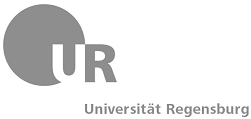You are not logged in
Detailed Program and Sessions Overview
Feel free to explore the exciting contributions of the TeaP 2024.
The book of abstracts can be found here.
An interactive agenda and detailed program can be found here.
The "Bookmark" feature allows you to bookmark individual papers / sessions of interest. However, these bookmarks are only stored locally on your current device. So please remember to export your own agenda at the end of the conference and import it to the device of your choice for use during the conference.
You can download the detailed program as PDF with additional general information about TeaP 2024 here.
Here is an overview of all sessions and additional events during TeaP 2024:
| 10:00-17:00 | Pre-Conference Workshops | ||||||||
| Technical and experimental design considerations for integrating fNIRS and EEG Location: H5 |
Hands-on introduction to fNIRS Location: H6 |
Preregistration in Psychology - A Hands-On Workshop Location: H7 |
Creating and publishing FAIR data - Hands-on workshop on using ZPID's data management services Location: H8 |
Hyperscanning with mobile EEG workshop - Demonstration and data acquisition of multiple participants in social contexts Location: H9 |
|||||
| 17:00-21:00 | Welcome Reception / Begrüßungsabend (Location: Leerer Beutel) | ||||||||
MONDAY, March 18th 2024
| H11 | H2 | H3 | H4 | H5 | H6 | H8 | H9 | ||
| 8:30-10:00 | Talks 1 | ||||||||
| Adaptive Retrieval Practice and its Applications in Education and Health (Van der Velde & Van Rijn) |
Multitasking and Cognitive Control I (Brüning & Lück) |
Better together? Benefits and costs of joint action (Wahn, Tufft, & Schmitz) |
Crossmodal Perception / Synesthesia (Sachdeva) |
Experimental Engineering Psychology and Human Factors I (Baumann & Brandenburg) |
Artificial Intelligence (Said) |
Facial Expressions I (Mitschke) |
How do auditory and speech processing alterations contribute to symptoms in psychosis: a predictive coding approach (Knolle & Sterner) |
||
| 10:00-10:30 | COFFEE BREAK | ||||||||
| 10:30-12:00 | Talks 2 | ||||||||
| Test-enhanced learning (Pastötter & Kliegl) |
Multitasking and Cognitive Control II (Lück & Brüning) |
Joint Action (Krishna) |
Seeing, Thinking, and Acting in a Physical World (Paulun & Rothkopf) | Experimental Engineering Psychology and Human Factors II (Baumann & Brandenburg) |
AI and decision-making: Insights from varied applied settings (Cecil) |
Facial Expressions II (Kroczek) |
Cognitive and Neural Processes Underlying the Perception of Odors (Schwarzbach & Hummel) |
||
12:00-13:30 |
LUNCH BREAK |
Fachgruppe Allgemeine Psychologie Mentoring-Programm (Location: H2) |
|||||||
| 13:30-15:00 | Welcome Address (Location: Audimax/H1) KEYNOTE DORTHE BERNTSEN “What happened to Ebbinghaus’ second category of memories? Basic findings on involuntary autobiographical memories” |
||||||||
15:00-16:30 |
Poster session 1 (Location: Main Hall) – COFFEE BREAK Z1: Motor and Action Control; Z2a: Memory and Learning I; Z2b: Clinical and Biological Psychology – Metacognition; Z3: Human Factors I – Perception I |
||||||||
| 16:30-18:00 | Talks 3 | ||||||||
| Source Memory (Tanyas & Symeonidou) |
Changes for learning: how do changes in task-specific representations shape adaptive cognitive control? (Schwarze & Fandakova) |
Action Control (Pfeuffer) |
Natural Scene Perception (Nara) |
Clinical Psychology (Kopp) |
Virtual Reality and the Perception of Time (Bogon & Riemer) |
Methods in reading and language research (Schmalz) |
Touch perception: From Unisensory to Multimodal (Katircilar & Drewing) |
||
| 18:15 | Meeting Fachgruppe Allgemeine Psychologie (Location: H3) | ||||||||
| 21:00 | Meeting of Young Scientists (Location: Hinterhaus) | ||||||||
TUESDAY, March 19th 2024
WEDNESDAY, March 20th 2024
COMS 118.33


